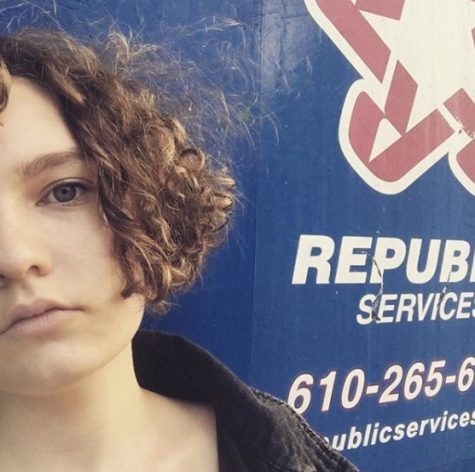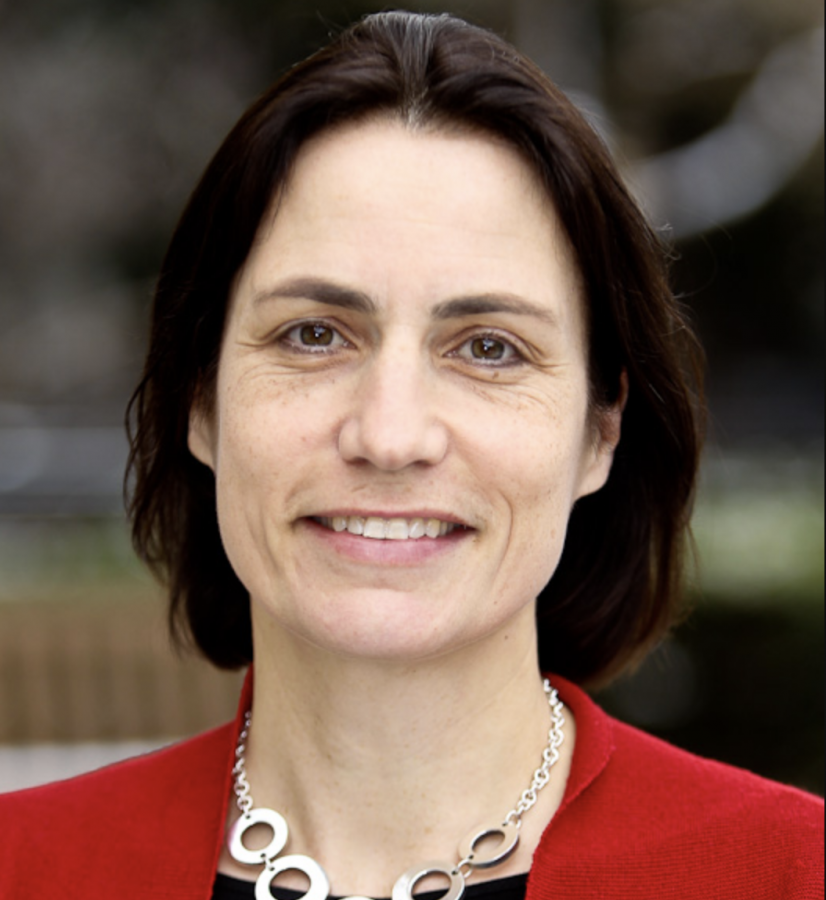Hill on the Hill: Dr. Fiona Hill Speaks to Harriton Students
Swiss-German poet Hermann Hesse once said, “Everything becomes a little different as soon as it is spoken out loud.” And it’s true. A fear-ridden childhood in northern England in the 1980s, a history degree from St. Andrew, and the intricacies of Russian politics all wove themselves into an inspiring narrative when spoken by Dr. Fiona Hill, who joined Harriton students over Zoom on February 26 to share her story and answer all of our many questions.
Dr. Hill worked on the National Security Council under multiple different presidents, advising on relations with Russia. She is currently working at the Brookings Institution, continuing her research on international relations. Though already a recognized legend in her field, she gleaned national attention by being a whistleblower in the Trump administration and testifying against him at his first impeachment trial in 2019.
Superintendent Copeland and Director of School and Community Relations Amy Buckman began speaking to Dr. Hill in early September of last year. The superintendent watched Hill’s testimony and was “taken by her directness and sense of nonpartisanship,” despite the nature of the trial.
She focused on the importance of the truth. When asked if the district would face backlash for this choice of speaker, Copeland joked, “I don’t think the district could choose any speaker and not receive some complaints.” After doing more research, he was further impressed by the fact that she was “a witness to history” and characterized her story as “rags to riches.”
The story goes as such: Fiona Hill grew up in a working-class town in northern England where coal mining was the primary occupation. From a very young age, her father pushed her to believe in herself and chase her dreams. Her teenage years were restricted by the presence of a serial killer in her area, which limited her ability to go out at night and see friends.
The Cold War was also at one of its tensest points. “Everyone thought college entrance exams were pointless because we were all going to die any day,” she says of her high school experience. Despite this, she excelled at her exams. She was accepted to St. Andrews, where she double-majored in Russian and Modern History.
After this, she attempted to get a job in London but faced heavy discrimination based on her accent. It signaled that she came from a northern-England working-class background. Because of this, people assumed she was incompetent and unintelligent.
After some frustration, she applied for a scholarship to get her master’s degree in the United States. She was accepted. Upon arrival in the US, she was amazed at how little discrimination she faced and how people even found her accent “fancy” and “regal.” From here, she continued to climb through the ranks at research institutions, writing and traveling and eventually securing a job in the White House.
She covered a myriad of topics in her hour of answering questions, but here are the main takeaways:
- The American Dream was very real for her
The 1990s America provided social mobility and opportunity that wasn’t available back home. She had little money, sought education and a fresh start, and was received with open arms in America. However, she acknowledged that she believes that the same mobility is becoming less and less available, especially to people of color. Her next written work is on precisely that subject.
- Global politics are a bit sticky right now.
Her main concerns are the instability that Putin’s death could cause and the rise of populist movements in the EU. There have been rumors for years now that Putin has some kind of cancer and is slowly losing his leadership capabilities.
Though she mentioned that there is a history of authoritarian leaders claiming illness (to see who gets a little too eager to take their place), she does believe that Putin may die soon, as he has been in power for over seventeen years. Putin’s death could cause a scramble for power in Russia that would destabilize the nation for what could be years.
Her fears surrounding the rise of populist movements in the EU relate to the efficacy of democracy. In her words, “populist movements short-circuit democratic processes,” and she worries that “a lack of checks and balances” could push some leaders closer to authoritarianism than the EU has seen since the 1940s.
- Diversity is our saving grace.
When Dr. Hill started working at the Brookings Institution in 2000, she was the only woman there. Since then, the workplace has become more diverse, but she still hopes to see different backgrounds entering foreign policy. Even just coming from another country, Dr. Hill was able to bring a fresh perspective and question problems from an angle that hadn’t been considered yet.
Not only is it essential in the workforce, she believes in government diversity matters even more.
“People don’t trust their government because it doesn’t look like them.”
She encouraged all students to look into international relations if they are interested in history or politics.
- In terms of national security, partisanship is our greatest weakness.
When asked if Russia had succeeded in dividing the U.S., she answered with no hesitation.
“Yes, and they really didn’t have to do much.”
A politically divided America can provide a distraction to policymakers, allowing Russia to exploit our weaknesses and perhaps even secure leaders into power who better serve their agenda. This same division also makes us more vulnerable to exploitation from China.
- You can do it!
Dr. Hill ended by saying she believed in the power of all of us to make the world better. Our diversity and fresh perspectives have the potential to make the world more mobile, thoughtful, and hospitable.
A special thanks to students Guillaume, Dinah, Nina, and Jonah for moderating the event. As a student body, we were privileged to hear from someone who participated in American democracy on such a high level. Maybe one day, we’ll do the same.

Sammy is so psyched to be an editor this year, and be back at The Banner for her fourth year as a writer! She can't wait to hear all of the opinions that...



